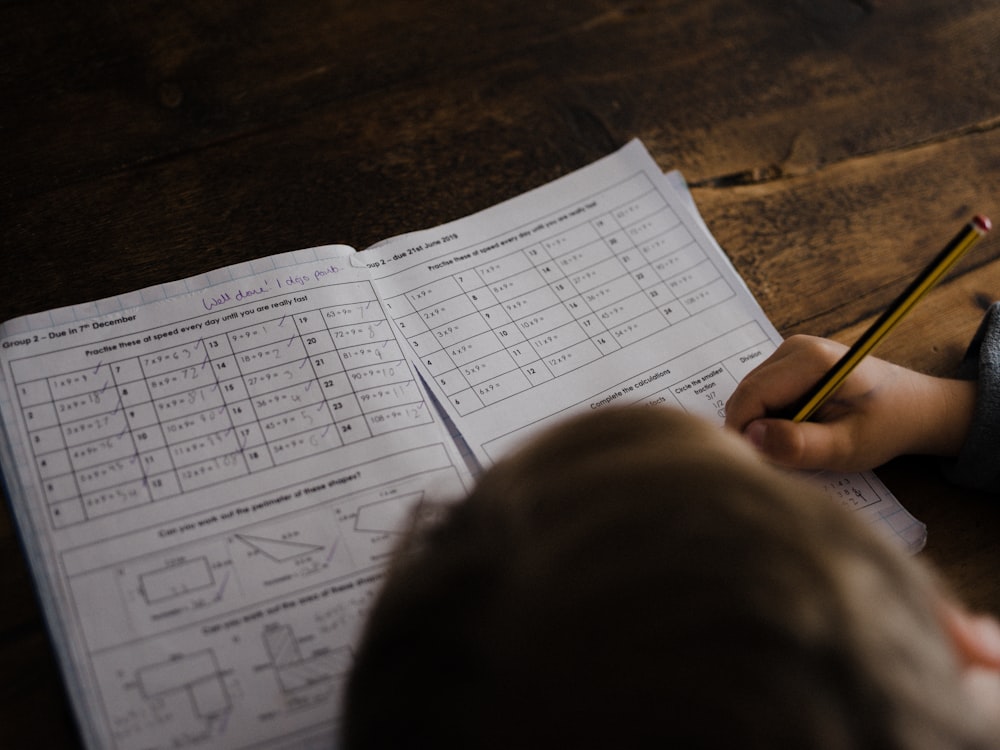As students progress through their academic journey, they will eventually be faced with standardized tests. These tests play a crucial role in determining a student’s academic progress and potential future opportunities. One subject that is heavily emphasized in standardized tests is math. In this article, we will explore some tips and strategies for 7th-grade students preparing for standardized math tests.
The Advantages and Disadvantages of Standardized Math Tests
Standardized testing has been a common practice in education systems worldwide for many years. It involves administering the same test to all students, with the aim of measuring their knowledge and understanding of specific subjects, including math. While standardized testing in math has its benefits, it also has its drawbacks. In this article, we will explore the advantages and disadvantages of standardized testing in math.
Advantages of Standardized Math Tests
Provides Objective Measurement: One of the main advantages of standardized testing in math is that it provides an objective measurement of students’ performance. Since all students are taking the same test, it is easier to compare their scores and assess their understanding of the subject. This is where standardized testing has its advantages:
- Identifies Strengths and Weaknesses: Standardized tests can help teachers and administrators identify students’ strengths and weaknesses in math. This can help them provide targeted support and instruction to students who are struggling in certain areas.
- Helps Evaluate Schools and Curriculum: Standardized testing in math can help evaluate the effectiveness of schools and curriculum. By analyzing test scores, educators can determine whether students are meeting academic standards and adjust curriculum accordingly.
- Prepares Students for College Admissions: Standardized tests such as the SAT and ACT are often required for college admissions. By taking standardized math tests in middle and high school, students can become familiar with the test-taking process and develop the skills needed to succeed on these exams.
Disadvantages of Standardized Math Tests
- Limited Scope: Standardized testing in math only measures a student’s knowledge and understanding of specific topics. It does not provide a comprehensive assessment of their overall academic abilities, nor does it take into account their learning style or individual strengths.
- Causes Stress and Anxiety: Standardized testing in math can cause stress and anxiety for students, particularly those who struggle with test-taking. This can negatively impact their performance and overall academic experience.
- May Limit Creativity and Critical Thinking: Standardized testing in math often emphasizes memorization and rote learning, which may limit creativity and critical thinking skills. It may also discourage students from exploring math in a more holistic and exploratory manner.
- Can Be Unfair to Some Students: Standardized testing in math may be unfair to students who come from disadvantaged backgrounds or have learning disabilities. These students may not have access to the same resources or support as their peers, which can impact their performance on the test.
Whatever your stance, for many of us, there’s no getting around them. So it’s best to try and prepare students as much as possible. Below, we list tips that will make the world of difference for your students’ experience and outcomes of standardized math tests.
Review Key Concepts
One of the best ways to prepare for a standardized math test is to review key concepts covered in the 7th-grade math curriculum. This may include topics such as algebraic expressions, geometry, and statistics. Students should review the concepts thoroughly and ensure they understand them before moving on to more advanced topics.
When you’re part of the MathTeacherCoach community, you’re provided with review guides and for each and every unit of study, followed by a grade review guide. This means you can easily integrate regular revision into your academic year and keep students’ memories refreshed without them feeling overwhelmed.
Practice with Sample Tests
Another effective way to prepare for standardized math tests is to practice with sample tests. Many test preparation websites offer free sample tests that students can take to familiarize themselves with the format and types of questions they will encounter on the actual test. Students can use these sample tests to identify their strengths and weaknesses and focus on improving their weaker areas.
At MathTeacherCoach, we actually provide you with prepared tests and answers that you can download at the click of a button whenever your students have finished a unit or even the whole grade. No more hours spent trawling the internet for sample papers!
Time Management
Time management is a crucial aspect of standardized tests. Students must complete the test within a set amount of time, which can create pressure and stress. It is important to develop effective time management strategies, such as pacing oneself and not spending too much time on difficult questions. Students should also practice with timed tests to get a feel for how much time they should spend on each question.
For inexperienced students, managing their time during a standardized test can be a challenge. So here are our tips for helping them improve before it comes down to the real deal:
- Familiarize Students with the Test Format and Timing:
The first step in effective time management is to familiarize students with the test format and timing. Most math tests have a set amount of time, and it’s important to know how many questions there are, how long students have for each question, and the order of the questions. This will help them plan their time accordingly and ensure that they don’t spend too much time on one question. - Read the Questions Carefully: Reading the questions carefully is crucial for effective time management. Rushing through questions can lead to mistakes and waste valuable time. Get students into the habit of taking the time to read each question carefully, paying attention to key details and keywords. This will help them identify the problem and develop a plan for solving it.
- Use Scratch Paper and Show Their Work: Using scratch paper and showing their work can help your students manage their time effectively. Writing down the work and steps will not only help students avoid mistakes, but also make it easier to check their work later. It can also help keep track of where they are in the problem and save time on unnecessary calculations.
- Prioritize the Questions: For many students, it’s common to work in a sequential fashion, starting with question one and working in sequence. But learning to prioritizing the questions can help them manage their time effectively. By starting with answering the questions that they know, they can gain time for more tricky questions quickly and easily. This will also help build their confidence and momentum for more difficult questions. If students come across a question that they are struggling with, encourage them to move on to the next question and come back to it later if time permits.
- Practice with Timed Tests: Practicing with timed tests is one of the best ways to improve time management. Get your students familiar by setting a timer for the amount of time that is available for each section and work through the questions as if it were a real test. This will help students get a feel for how much time they should allocate for each question and improve their speed and accuracy.
Work with a Tutor or Study Group

Working with a tutor or study group can be a helpful way to prepare for standardized math tests. A tutor can provide individualized support and guidance, while a study group can offer peer support and collaboration. These resources can be especially helpful for students who may be struggling with certain concepts or need extra practice.
Even for students who are proficient in the material, as the saying goes, the best way to learn is to teach. By giving these students a teaching role, you’re helping them cement their learnings in a way that will last them a lifetime.
Stay Positive

Finally, it is important for students to stay positive and confident as they prepare for standardized math tests. Anxiety and stress can hinder performance, so students should try to approach the test with a positive attitude and a belief in their ability to succeed. Encouragement and support from teachers and parents can also be helpful in building confidence and reducing anxiety.
Here are our top tips for helping support students:
- Teach Relaxation Techniques
Teaching relaxation techniques such as deep breathing, progressive muscle relaxation, and visualization can help students manage their stress and anxiety before tests. These techniques can be practiced before the test or even during breaks in the test. - Provide Adequate Preparation
Providing students with adequate preparation can help build their confidence and reduce their stress levels. This can include practice tests, review sessions, and study materials. Students who feel prepared are less likely to feel overwhelmed or stressed during the test. - Encourage Positive Thinking
Encouraging students to think positively can help them manage their stress and anxiety. Remind them to focus on their strengths and accomplishments, and to approach the test with a positive mindset. Negative self-talk can be detrimental to their confidence and performance, so it’s important to help them shift their thinking to a more positive outlook. - Create a Supportive Environment
Creating a supportive environment can also help minimize stress and anxiety for students. Encourage students to ask questions and seek help if they need it. Provide a comfortable testing environment that is quiet, well-lit, and free from distractions. Let students know that you believe in their abilities and that you are there to support them. - Provide Healthy Snacks
Providing healthy snacks such as fruit, nuts, or granola bars can help students maintain their energy levels and reduce stress. Hunger and dehydration can cause fatigue and irritability, which can increase stress levels. Encouraging students to stay hydrated by drinking water or other healthy beverages can also help.
In conclusion, preparing for standardized math tests can be a daunting task for 7th-grade students, but with the right strategies and support, they can succeed. Reviewing key concepts, practicing with sample tests, managing time effectively, working with a tutor or study group, and maintaining a positive attitude are all important aspects of test preparation. By taking these steps, students can approach the test with confidence and achieve their full potential.
If you enjoyed this read, be sure to browse more of our articles. More importantly, if you want to save yourself hours of preparation time by having full math curriculums, review guides and tests available at the click of a button, be sure to sign up to our 7th Grade Newsletter. You’ll receive loads of free lesson resources, tips and advice and exclusive subscription offers!
Images sources
Featured image: https://www.freepik.com/free-photo/high-angle-uncompleted-checking-boxes_5330507.htm#query=exam&position=5&from_view=search&track=sph
https://unsplash.com/photos/JexAuNCfefs
https://unsplash.com/photos/oXV3bzR7jxI
https://unsplash.com/photos/AZrBFoXP_3I




